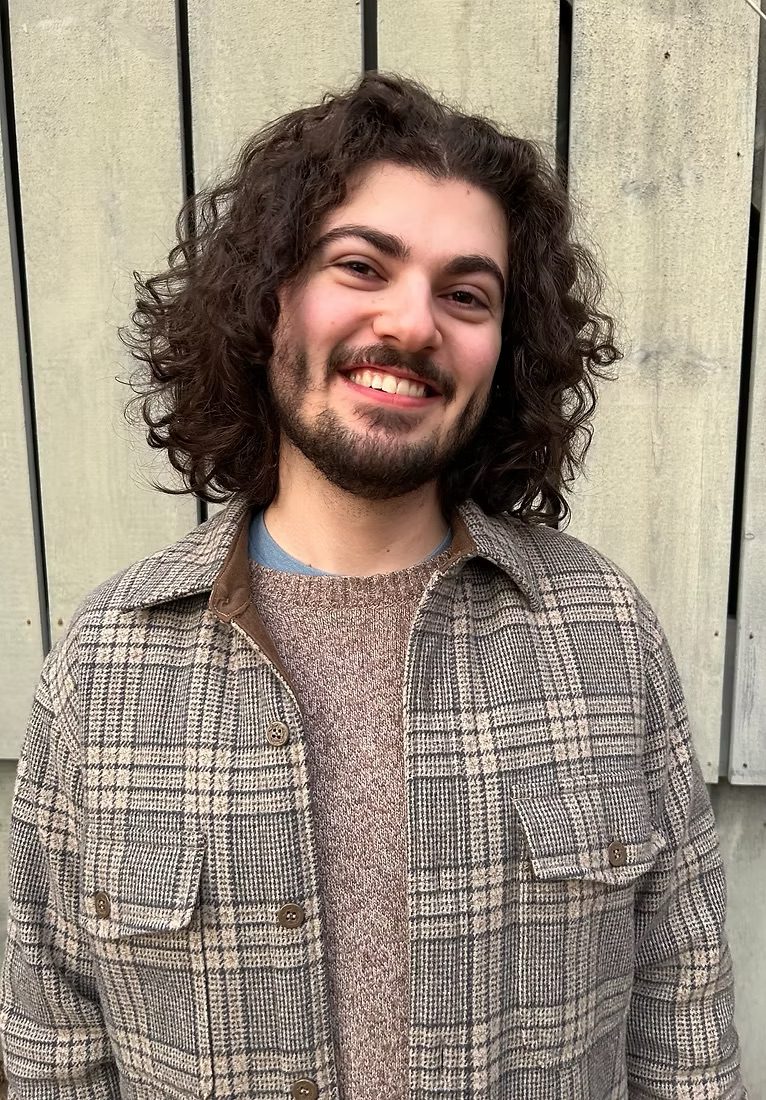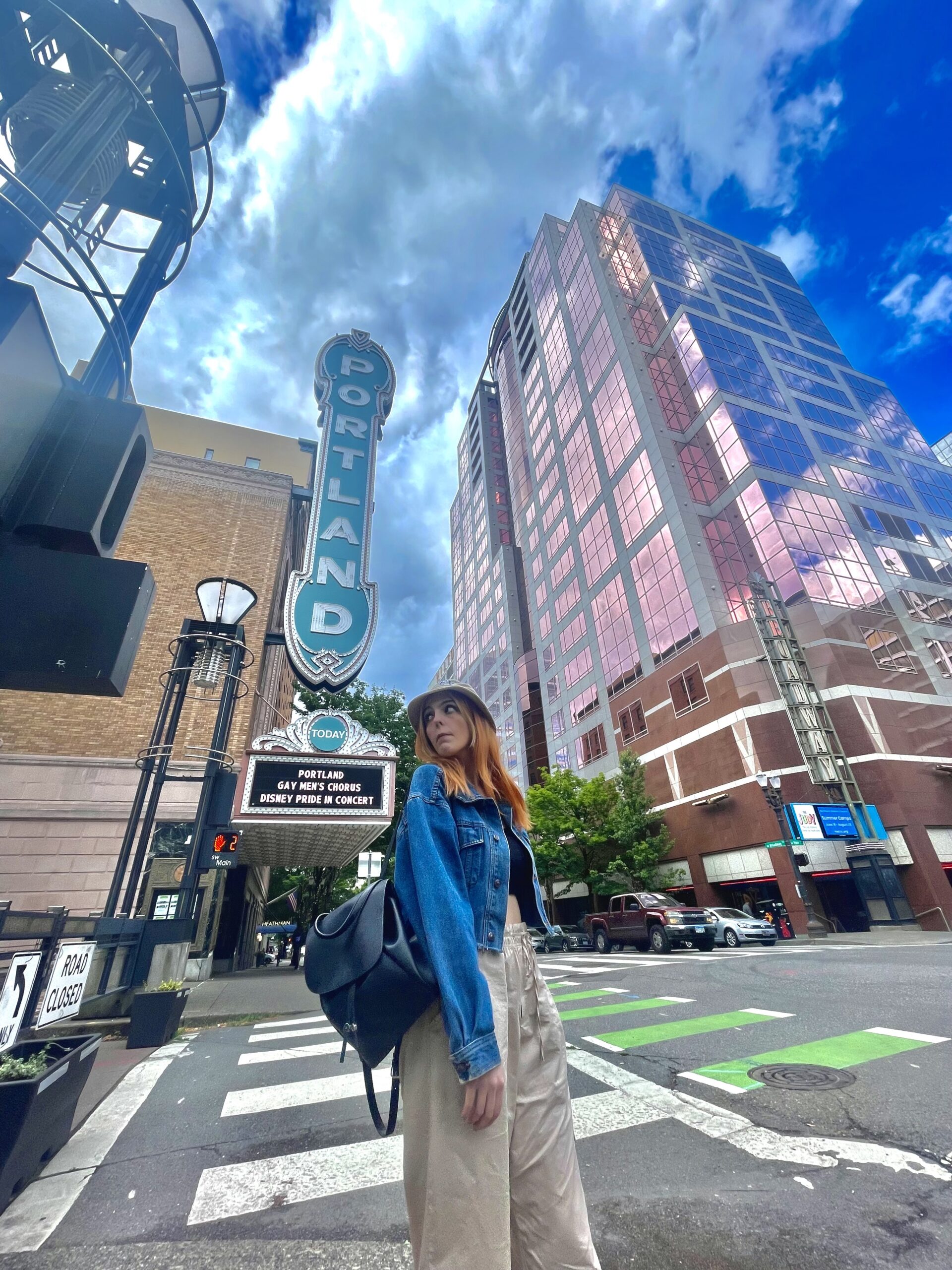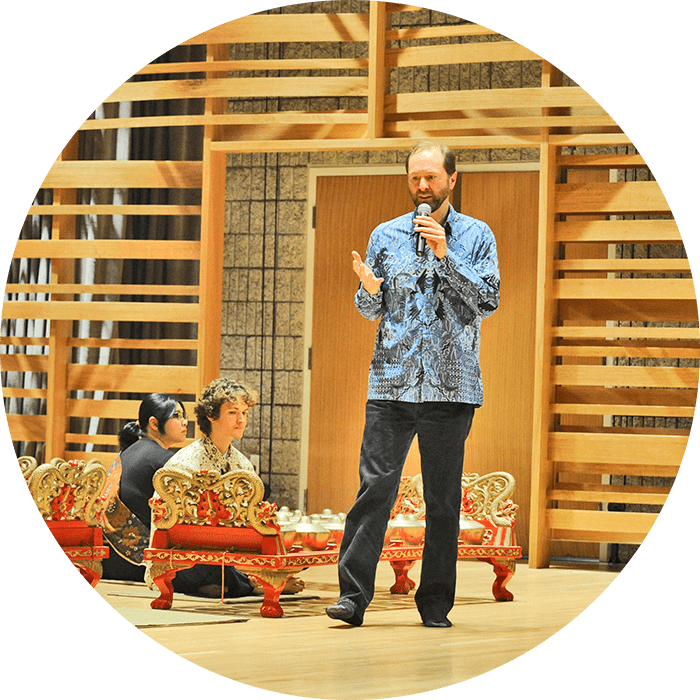Music
The Earlham Department of Music models the belief that all musics are worthy of study. This is reflected not only in the impressive range of our ensembles, it is also woven into the entire music curriculum.
Around our core curriculum are many options that allow students to individualize their study of music within the department. Whereas the music studies program provides you with a solid liberal arts grounding in music, the music major—with its various concentrations—gives more focused preparation for graduate schools or other pursuits.
Start your adventure
Sign up for more information about Earlham College.
From Earlham College to the world’s stage

Owen Kaplan ’22
A broadcast audio Engineer for New York Public Radio (WNYC), Owen primarily records and mixes news stories for live broadcast and podcast formats. He also offers freelance sound design and composing services for film, video games, podcasts and other media with sound components.
“I don’t think I would have ended up in broadcast audio engineering had I not been given the freedom to divert my major towards my passion. At Earlham, I create a new major called New Media, and ultimately double majored in Music with a focus in computer music.”

Jordan “Jook” Goodson ’22
Jordan is a sales admin analyst for a pharmaceutical distribution company and an independent artist. He is the founder of a record label called Kontras Entertainment.
“Earlham played a huge role in helping me shape my plans for the future; the music department is where I discovered my God-given purpose and how to use my talents for service.”

Adla Burza ’22
Adla is the head of the Paola Branch of the Malta Piano Academy and a professor in piano and theory. She is an independent singer and pianist who is preparing to release her first single in spring 2025.
“Earlham helped shape my artistry, and provided me with the strong foundation to become a better performer, songwriter, and composer, all of which continue to guide me in my career to this day.”
Recent graduates have entered fields ranging from education and non-profits to entertainment and software.
An Eclectic Approach to Music Studies
The Earlham Music Department has always operated under the principle that a liberal arts music major should be as wide ranging as possible. If you’re interested in ethnomusicology, you’ll receive an unusual degree of early training in this field (unique for undergraduate programs). Computer musicians get significant hands-on experience with many technologies; we place a special emphasis on creating new works for interactive live performance, and we train students to work with Moog and Eurorack analog synthesis systems. Our popular music courses engage with you in ways that deeply enrich and broaden your understanding of music in relationship to modern society. Instrumentalists and singers can expect expert instruction on their instrument or voice, and our range or ensembles is impressive for a school this size. Music Education Prep gears students for further graduate studies in teaching and music education, such as the Earlham M.A.T. program.
Instrumental ensembles
Earlham College offers a wide variety of instrumental ensembles for students interested in learning or continuing to play an instrument, including many distinctive options explorable here.
Choral ensembles
From Choir Concert to Chamber Singers, Earlham College offers a wide variety of choral ensembles for students interested in honing their vocal skills with a group.
Performing in community
Earlham's music program offers numerous ways for students, faculty, staff and community members to come together in the creation of music and sound. Watch one of our recent performances below:

Our faculty
Our faculty’s areas of specialty include Javanese gamelan, ethnomusicology, music technology, West African percussion, jazz improvisation, compellingly diverse choir repertoire, piano accompaniment and more.
Frequently asked questions
- Addison Jordan – Saxophone Instructor [email protected]
- Charles Ramsey – Guitar Instructor [email protected]
- Chris Rogan – Piano Instructor [email protected]
- Christopher Jeffery – Trumpet Instructor [email protected]
- James Thompson – Flute Instructor [email protected]
- Jarrod Davis Jr. – Voice Instructor [email protected]
- Jeff Templeton – Banjo Instructor [email protected]
- Joanne King – Harp Instructor [email protected]
- Josh Hannon – French Horn Instructor [email protected]
- Keith Cozart Steele – Percussion Instructor [email protected]
- Lynda Herndon – Violin Instructor [email protected]
- Michael Majors – Bassoon Instructor [email protected]
- Michael Ronstadt – Cello Instructor [email protected]
- Rich Begel – Trombone/Low Brass Instructor [email protected]
- Sarah Minneman – Oboe Instructor [email protected]
- Shiyu Wang – Piano Instructor [email protected]
- Anton Neumayr – Bass Instructor [email protected]
- Wenbin Lyu – Adv. Composition Instructor [email protected]
Yes! Earlham offers a variety of off-campus study options.
Learn more about available programs via our Center for Global and Career Education.
Upon completing an undergraduate degree in Music Education Prep or any other B.A in Music track, students have the opportunity to apply to Earlham’s Master of Arts in Teaching (M.A.T.) program which is a one year cohort that includes teaching licensure.
The Center for Visual and Performing Arts, which was completed in 2014, provides state-of-the-art facilities, featuring separate rooms for rehearsing jazz, percussion and Javanese gamelan.
There’s also an acoustically superb recital hall, which doubles as rehearsal space for orchestra and choir, as well as sonically isolated practice rooms and teaching studios equipped with Steinway pianos.
We offer performance scholarships in the areas of voice and instrumental music. Auditions are organized by the Admissions Office and take place in February. Scholarships range between $1000 and $3000 per year, and require the student to join an ensemble each semester in residence.
We also offer lesson scholarships each semester, which covers the lesson fee for one semester. The scholarship is renewable, but must be applied for each semester.
The Rariden Scholarship is awarded annually to a student entering Earlham who is interested in pursuing an area within the visual and performing arts. Preference is given to a student from Wayne County, Indiana, although we will consider Indiana residents from outside the county as well. The scholarship is $5000 for each of a student’s four years at Earlham, totaling $20,000.
If you hold a deep appreciation for the role music plays in life—for the individual, for society and globally and aspire to pursue graduate programs in ethnomusicology, music education, composition and performance, this program will be a great fit for you.
You might also find yourself among our graduates who have used their grounding in music to complement other majors and interests, like computer science and computer-generated music, languages and nonprofit work, and psychology and therapy.
Our faculty
Our faculty believe in developing the whole person, as well as the musician within.